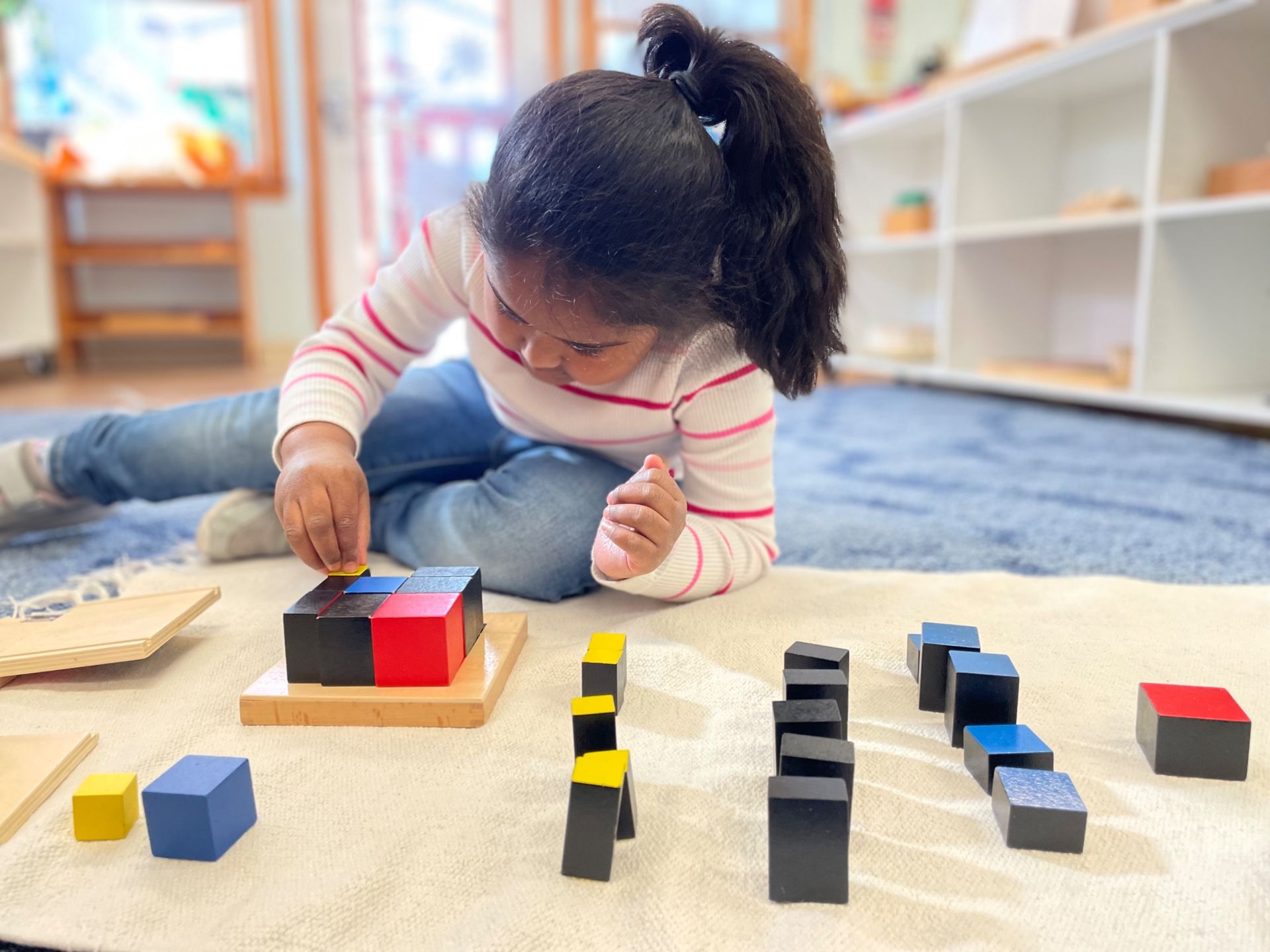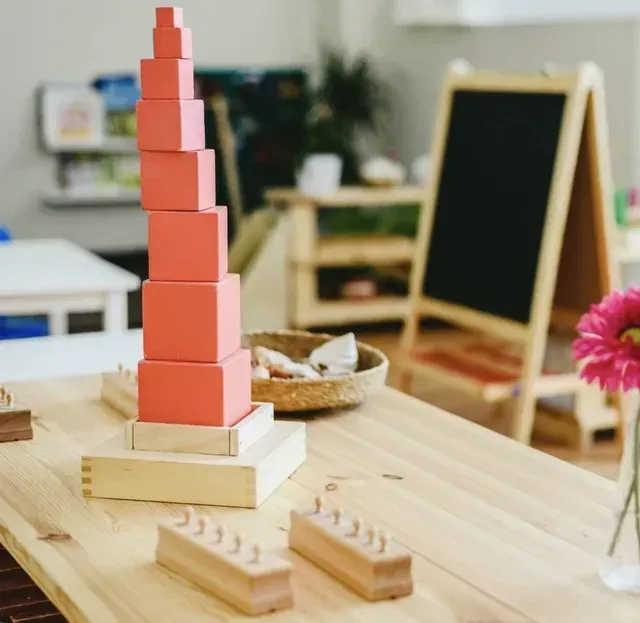
You may have heard that Montessori children don't "play"...they "work," but what does that really mean?
We know that for many who are unfamiliar with Montessori, using the term “work” in the early childhood
classroom can be a bit off putting. When a child is engaged in an activity in our classrooms, we say not to
interrupt the child’s “work” rather than using words such as “activity” or “play.” You may hear a guide telling
students to “choose their work” or if they want to “work alone or with a friend.” There is a purpose behind
this. Dr. Maria Montessori loved the word she used to describe the learning process - work. She believed
that the word “work” accurately conveyed and showed respect towards the effort that a child puts into
expanding their mind and spirit. The word “play” by comparison seemed dismissive of this greatness. She
writes:
"It is certain that the child’s attitude towards work represents a vital instinct; for without work his personality cannot organise itself and deviates from the normal lines of its construction. Man builds himself
through working. Nothing can take the place of work, neither physical well-being nor affection, and,
on the other hand, deviations cannot be corrected by either punishment or example."
In Montessori, we believe that the children are working hard to absorb everything around them. It is
important that adults recognize this immense effort and show the child respect so that they can explore
their environment and build a foundation for life. Children take pride in their work and accomplishments in
our classrooms, and we are sure to acknowledge their efforts and avoid using words such as “play” as they
can be dismissive.
Is There Room For Playtime?
Don’t worry...we promise that Montessori education leaves time for fun, playtime, and imagination. Dr. Maria Montessori noticed that children prefer learning about the real world around them before anything else, particularly during the first six years of life. She found that children gravitated towards working with real food rather than playing with a pretend kitchen. Children want to have a concrete understanding of the world around them. This is why the materials in Montessori classrooms are based in reality, the natural world, and practical life.
Children have the time to play with peers and explore their imagination during playground time. We find that most children enjoy playing house, or other games that are modeled from their own life experiences. This is what they are naturally curious about. In Montessori, we do encourage families to limit exposure to “fantasy.” Fantasy is different to imagination, especially to children younger than age six. Fantasy can include things like fairies, mermaids, superheroes, etc.
“The young child cannot distinguish well between the real and the imaginary, between things that are possible and things that are merely !made up"” – Dr Montessori, Times Education Supplement, 1919
To a child, the real world is full of awe and wonder. In our classrooms, we read books about frogs, planets, ocean animals, flowers, insects, and we encourage the same in the home, but ultimately, the choice is yours!
Interested in observing children working in a Montessori classroom? Schedule a tour today!


